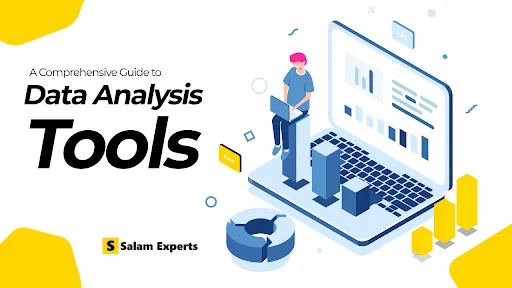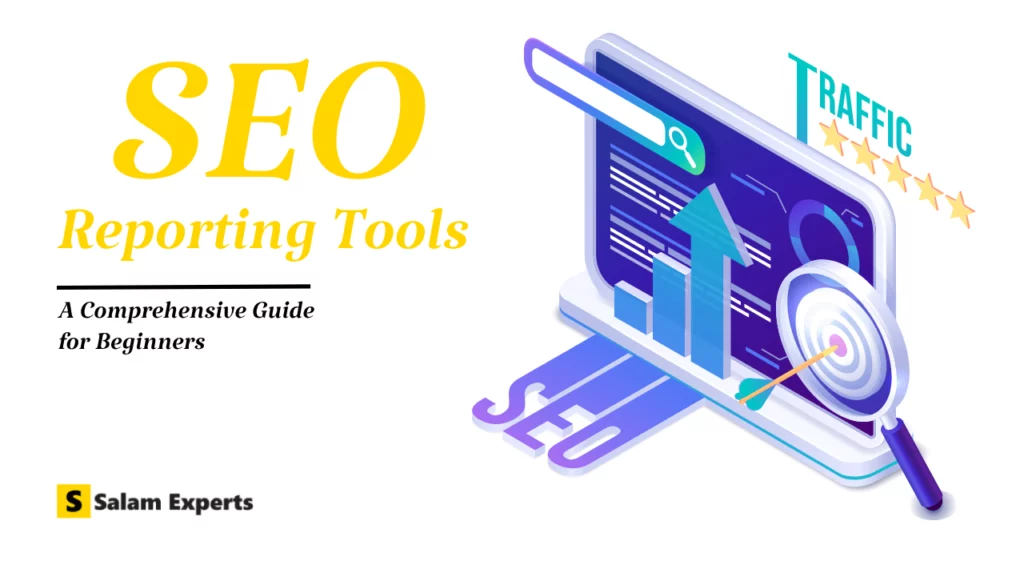Empowering Business Insights: A Comprehensive Guide to Data Analysis Tools

In today’s data-driven business landscape, harnessing the power of data analysis is essential for making informed decisions, driving growth, and gaining a competitive edge. From spreadsheet software to advanced machine learning tools, there is a plethora of options available to businesses seeking to unlock actionable insights from their data. In this article, we’ll explore a range of data analysis tools tailored to various business needs.
Key Highlights:
- Diverse toolbox: From RapidMiner to Google BigQuery, explore a wide range of data analysis tools for diverse business needs.
- Empowering insights: Harness the power of visualization and advanced analytics to drive informed decision-making and gain a competitive edge.
- Transformative potential: Invest in data-driven transformation to unlock growth and innovation, leveraging the right tools and empowering teams.
20 Best Data Analysis Tools for Your Business
1. RapidMiner:
RapidMiner is a comprehensive data science platform that offers a visually intuitive interface for building analytical workflows. With its drag-and-drop functionality, RapidMiner enables users to construct complex data pipelines without writing code. Additionally, RapidMiner’s integration with popular machine learning libraries such as Scikit-learn and TensorFlow enhances its capabilities for advanced predictive modeling and analysis.
2. TensorFlow:
TensorFlow is a deep learning framework for Python, enabling users to build and train neural network models. With their flexible architectures and extensive community support, they facilitate the development of cutting-edge machine learning applications. Whether developing image recognition models or natural language processing algorithms, TensorFlow empowers data scientists to push the boundaries of AI innovation.
“Looking to streamline your business processes? Explore how to maximize efficiency with The Best Automation Tools for Your Company.
3. Hubspot:
HubSpot provides a range of tools for inbound marketing, sales, and customer service, including robust reporting and analytics features. With its integrated CRM platform, HubSpot enables businesses to track interactions with leads and customers, analyze marketing performance, and measure ROI effectively. By leveraging HubSpot’s reporting and analytics capabilities, businesses can identify trends, track KPIs, and make data-driven decisions to drive growth and success.
4. Tableau:
Tableau is renowned for its intuitive interface and powerful visualization capabilities. It enables users to create interactive dashboards and compelling data visualizations, facilitating deeper exploration and understanding of datasets. Tableau’s drag-and-drop functionality makes it accessible to users with varying levels of technical expertise, empowering businesses to derive actionable insights from their data effortlessly.
5. Microsoft Excel:
Microsoft Excel remains a cornerstone tool for data analysis in businesses of all sizes. With its familiar interface and powerful functionality, Excel allows users to perform calculations, visualize data with charts and graphs, and manipulate datasets efficiently. From simple budgeting to complex financial modeling, Excel is versatile enough to handle a wide array of analytical tasks.
6. MATLAB:
MATLAB serves as a comprehensive platform for numerical computation, visualization, and algorithm development. Widely used in scientific and engineering domains, MATLAB facilitates complex data analysis tasks with its extensive libraries.
7. Jupyter Notebooks:
Jupyter Notebooks provides an interactive environment for creating and sharing documents containing live code, visualizations, and explanatory text. Supporting multiple programming languages, it facilitates collaborative data analysis workflows. Whether exploring data, prototyping algorithms, or documenting analysis processes, Jupyter Notebooks offers a versatile platform for data scientists.
“Wanna Ensure optimal website performance for your business. Visit our blog on the best Hosting Options for Core Web Vitals.
8. Apache Spark:
Apache Spark is a fast and general-purpose distributed computing system for big data processing. Its in-memory processing capabilities and support for multiple programming languages make it well-suited for handling large-scale datasets and performing complex analytics tasks. Apache Spark’s versatility and scalability make it a preferred choice for businesses dealing with massive volumes of data.
9. SAS (Statistical Analysis System):
SAS offers a comprehensive suite of tools for advanced analytics, business intelligence, and predictive modeling. Widely adopted in industries such as healthcare and finance, SAS provides robust solutions for data-driven decision-making. With SAS, data scientists can leverage advanced analytics techniques to gain deeper insights from data and drive business outcomes.
10. QlikView/Qlik Sense:
QlikView and Qlik Sense empower users to create interactive data visualizations and dashboards, facilitating real-time insights and analysis. Leveraging associative data indexing, they offer powerful capabilities for data exploration. With Qlik, data scientists can uncover hidden patterns and trends in data, enabling informed decision-making across organizations.
11. scikit-learn:
scikit-learn is a machine learning library for Python, offering a wide range of algorithms for classification, regression, clustering, and dimensionality reduction. Its user-friendly interface and extensive documentation make it a popular choice for implementing machine learning models. With scikit-learn, data scientists can build and deploy machine learning solutions with ease.
12. R:
R is a programming language and environment specifically designed for statistical computing and graphics. With its extensive library of packages for statistical analysis and data visualization, R is a preferred choice for researchers and data scientists seeking to perform sophisticated statistical analyses. From linear regression to machine learning algorithms, R provides a comprehensive toolkit for exploring and modeling data.
“Interested in how data analysis can elevate your bounce house business? Check out Marketing Strategies for Bounce House Business.
13. Apache Flink:
Apache Flink is a powerful stream processing framework for real-time analytics and batch processing. It offers high throughput, low latency, and exactly-once semantics, making it ideal for processing large-scale streaming data. With Flink, data scientists can perform real-time analysis on continuously streaming data streams, enabling rapid insights and decision-making.
14. Python:
Python has emerged as a versatile programming language for data analysis, thanks to libraries such as NumPy, Pandas, and SciPy. NumPy provides support for numerical computing, Pandas offers data manipulation capabilities, and SciPy extends Python’s functionality to include scientific and technical computing. Together, these libraries form a powerful ecosystem for statistical analysis and machine learning tasks.
15. D3.js:
D3.js is a JavaScript library for producing dynamic, interactive data visualizations in web browsers. By leveraging SVG, HTML, and CSS, D3.js enables businesses to create custom visualizations that are responsive and interactive. From interactive charts and maps to animated data visualizations, D3.js offers endless possibilities for showcasing data in engaging and meaningful ways.
16. Google BigQuery:
Google BigQuery is a fully managed, serverless data warehouse solution that enables fast SQL queries against large datasets. It offers real-time analytics, machine learning integration, and seamless integration with other Google Cloud services. With BigQuery, data scientists can analyze massive datasets with ease, leveraging Google’s infrastructure for scalable and cost-effective data processing.
17. Microsoft Power BI:
Developed by Microsoft, Power BI is another leading BI tool that excels in data visualization and analysis. With its seamless integration with other Microsoft products such as Excel and Azure, Power BI enables organizations to leverage their existing data infrastructure to create insightful reports and dashboards. Moreover, Power BI’s robust data modeling capabilities empower users to prepare and transform data for analysis with ease.
18. H2O.ai:
H2O.ai is an open-source machine learning platform that offers scalable algorithms for data science and machine learning tasks. It provides support for distributed computing and automatic machine learning. With H2O.ai, data scientists can leverage state-of-the-art machine learning algorithms to solve complex problems and drive innovation.
Looking to leverage data analysis to boost your pet business? Explore our Innovative Strategies to Promote Your Pet Business.
Conclusion:
The abundance of data analysis tools available to businesses today provides unprecedented opportunities for deriving insights, optimizing processes, and driving innovation. Whether it’s analyzing sales data, predicting customer behavior, or uncovering market trends, businesses can leverage a diverse array of tools to unlock the full potential of their data and gain a competitive advantage in the marketplace. By investing in the right tools and empowering teams with the necessary skills and resources, businesses can embark on a journey of data-driven transformation and achieve sustainable growth and success.
Author
-

We are a digital marketing agency with over 17 years of experience and a proven track record of helping businesses succeed. Our expertise spans businesses of all sizes, enabling them to grow their online presence and connect with new customers effectively. In addition to offering services like consulting, SEO, social media marketing, web design, and web development, we pride ourselves on conducting thorough research on top companies and various industries. We compile this research into actionable insights and share it with our readers, providing valuable information in one convenient place rather than requiring them to visit multiple websites. As a team of passionate and experienced digital marketers, we are committed to helping businesses thrive and empowering our readers with knowledge and strategies for success.
View all posts




